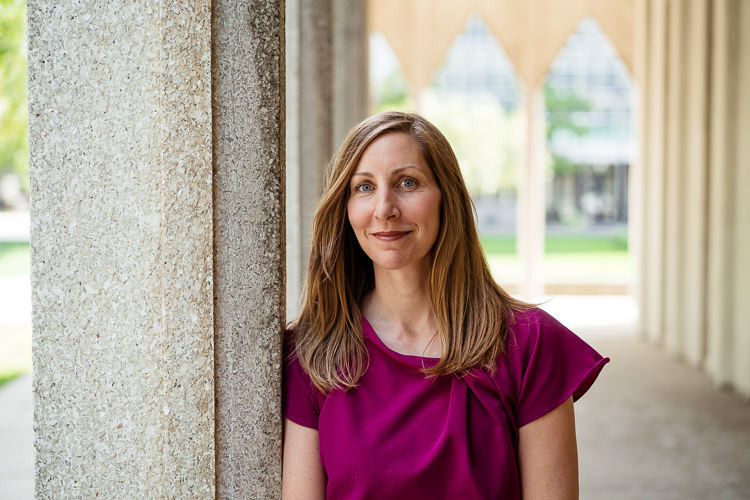Wayne State is creating a pipeline for community health practitioners in Detroit
Through the Community Health Career Pipeline, students participate in learning workshops and a work-study apprenticeship at a farmers market, which provides them opportunities to practice nutrition education, public speaking, and promotions.

Sarna Sutradhar, a 15-year-old Cass Technical High School student, has a dream to practice medicine some day. But seeing the long road from high school sophomore to doctor is not easy.
Fortunately, a program she participated in last summer, the Community Health Career Pipeline (CHP), supported her goal to become a doctor by exposing her to the Detroit food system and the steps she needs to take to prepare for college. Through CHP, she participated in learning workshops and a work-study apprenticeship at the Wayne State University Farmers’ Market, which provided her the opportunity to practice nutrition education, public speaking, and promotions.
Along with learning about nutrition, food safety, leadership, and contributing to a healthier community, Sutradhar gained a better understanding about higher education and applying for scholarships.
“I learned a lot of things about my future,” Sutradhar says. “I learned things from James Mallare, and now I know what I have to do.”
Mallare, a doctoral student and school health liaison for WSU and Detroit Public Schools Community District, serves in a mentorship role with CHP along with other graduate students. A host of volunteers also assist with programming, helping students better understand community health careers and the college experience.
Connections like these can be profound for the youth involved in CHP, with its focus on preparing young leaders for community health jobs. The Detroit program concentrates on food justice, food access, and food systems.
“Our goal is to provide a five-pillar streamlined and connected career development and community health program to support Detroit high school youth to enter college, obtain well-paying jobs, and change the health, economic, and social trajectories of their communities,” says Dr. Noel Kulik, project director of CHP, a research fellow in the Center for Health and Community Impact, and faculty in the Division of Kinesiology, Health and Sport Studies Division within the WSU College of Education.

CHP, which launched in 2017 with funding from the Michigan Health Endowment Fund, does this by formalizing and building relationships between health-focused organizations, projects, schools, and the larger community.
The program’s five pillars are education, experience, apprenticeships, leadership, and career development. They build on one another, although entry into the pipeline is possible at the start of any one pillar.
The education pillar serves as the foundation, providing youth in the program with basic nutrition knowledge in their classrooms. This pillar has the largest reach and has touched the lives of 4,600 youth at seven Detroit high schools.
In partnership with the Grow Detroit’s Young Talent program, CHP provides students work and leadership experience. This summer, more than 132 students were placed in paid apprentice positions at 19 local agencies to work on food-related tasks, including growing and harvesting produce, running farmers markets, providing cooking demos, and educating the community about nutrition, food assistance programs, and issues of food access.
The career development pillar focuses on college readiness, career exploration, and project-based learning.
The takeaways for students run the gamut, according to Kulik. “Some students have learned how they can incorporate healthy eating practices with their families and have started to implement some strategies, while others have decided that they are very interested in this career path professionally and would like to apply to Wayne State to further their education.”
Others have worked at a paid, engaging summer jobs in community settings, building skills such as communication, marketing, point of sale, farming, education, technology, and problem solving.
For Terrell Willis, the program filled his summer with new experiences. He worked with the Fair Food Network, updating its website for Double Up Food Bucks (a program for Bridge Card holders that matches purchases of Michigan fruits and vegetables dollar for dollar). He also visited different farmers markets to help out customers.
“I learned more about Double Up Food Bucks and how it works,” says Willis. “The program was educational. I learned how to talk to different people and developed new skills. I learned how different grocery stores and farmers markets work with Double Up Food Bucks, and how people in need can benefit from the program.”
Willis hopes to attend WSU.
According to Kulik, the CHP program is similar to other “pipeline” programs that prepare youth for college; however, it has the distinct focus on community health, which is a growing field offering good job prospects. In fact, the projected percent change in employment for health educators and community health workers (2016 to 2026) is 16 percent, much higher that the 7 percent average growth rate for all occupations, according to the Bureau of Labor Statistics’ Occupational Outlook Handbook.
And while building interest in community health careers is needed to meet growing demand for jobs, it’s vital for creating a healthier Detroit. According to the County Health Rankings & Roadmaps 2018 data, Wayne County is ranked last among Michigan’s 83 counties for health outcomes — and poor health still disproportionately affects people of color.
Detroit has a long way to go to become a truly healthy community. Engaging young people in the Community Health Pipeline has the potential to support a thriving Detroit where everyone has a fair chance for a healthy quality of life.
This article is part of Michigan Nightlight, a series of stories about the programs and people that positively impact the lives of Michigan kids. It is made possible with funding from the W.K. Kellogg Foundation. Read more in the series here.
Photos by Nick Hagen.





